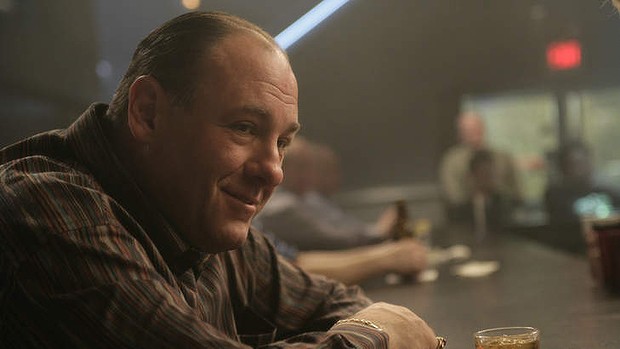The Wall Street Journal asked me to write about James Gandolfini and The Sopranos for its Saturday “Masterpiece” series. I got the call on Thursday and delivered the piece this morning. Here’s an excerpt.
* * *
What a difference a decade makes. Not long after James Gandolfini’s death was announced on Wednesday, a friend of mine broke the news to his 22-year-old son and learned that the young man had never heard of the erstwhile star of “The Sopranos,” David Chase’s celebrated cable-television series about Tony Soprano, a likable but pathologically violent New Jersey mob boss. My friend was astonished. He shouldn’t have been. Most millennials, after all, live in the present-tense world of pop culture, in which nothing matters that happened before they were 12. The heyday of “The Sopranos,” which ran on HBO from 1999 to 2006, predates the dawn of their cultural consciousness. For them TV drama is “Breaking Bad” and “Mad Men.” “The Sopranos” is…well, history.
If millennials took anything more than casual note of Mr. Gandolfini’s demise, my guess is that they were amused by how it demonstrated the extent to which their baby-boom parents continue to believe that the world revolves around their personal preferences. What the boomers wrote about Mr. Gandolfini during the past 72 hours was as overstated as what they wrote about “The Sopranos” when it was new….

All that said, I think it likely that “The Sopranos” will be remembered, if not necessarily watched, for many years to come. It was, after all, a turning point in the history of small-screen drama, the very first television series that was incontestably superior in artistic quality to the vast majority of contemporary Hollywood movies. My own entry in the Great “Sopranos” Hyperbole Invitational was a 2000 essay in which I declared that “‘The Sopranos’ makes most ‘serious’ Hollywood movies look thin and tepid.” It was true then, and it’s true now. The difference is that there are now numerous other series of which the same thing could be said. The torch of seriousness has passed from film to TV, and Mr. Chase and his collaborators deserve full credit for causing that to happen.
Part of what made “The Sopranos” so powerful was the absolute self-assurance with which it fused drama and farce. The premise of the show–a mobster, overwhelmed by depression, enters psychotherapy in order to become a more effective crook–was purposefully funny, as was the overall tone of many of the episodes, which frequently veered in the direction of domestic comedy. But Tony never hesitated to kill or maim anybody who got in his way, and his penchant for violence was portrayed so graphically as to make it hard to laugh off. The jarring contrast between the two sides of his personality was the engine that drove “The Sopranos.”
In addition, no small amount of the show’s effectiveness arose from the way in which it used satire as a cunning way of sneaking in what proved on closer inspection to be an unexpectedly traditional view of American culture….
* * *
Read the whole thing here.
My favorite scene from The Sopranos:
Terry Teachout on the arts in New York City
An ArtsJournal Blog
